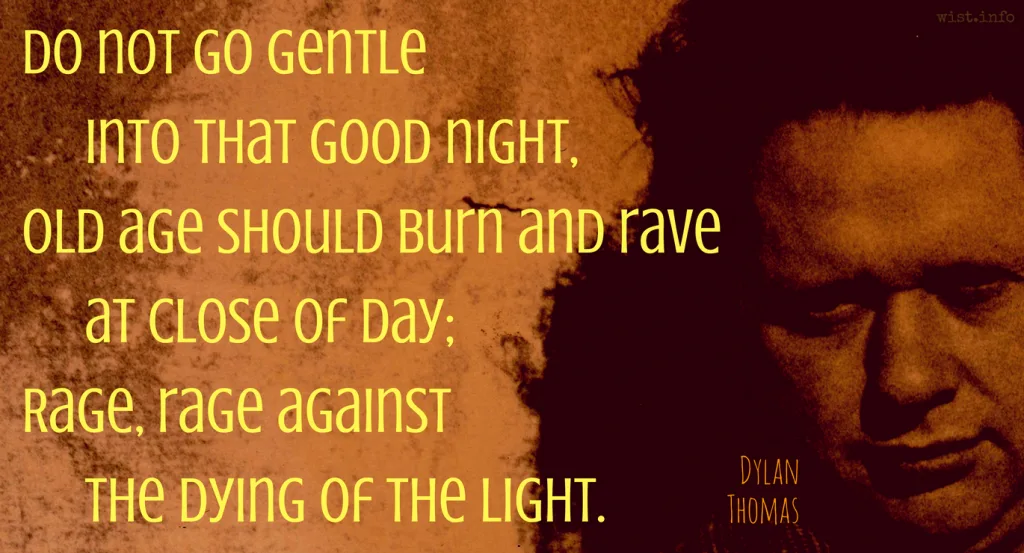His motives were outrage that had become a habit of mind, the bitterness in his heart, a deep sense of the iniquities he had suffered, the impulse to react, even against the good, the innocent and the just, if there be any. The point of departure and of arrival in all his thinking was his hatred of human law; a hatred that if not arrested in its development by some providential occurrence becomes within a given time hatred of society, then hatred of the human race, then hatred of creation, as is reflected in an ill-defined, constant and brutal desire to inflict harm on no matter whom, on any living creature.
[Il avait pour mobiles l’indignation habituelle, l’amertume de l’âme, le profond sentiment des iniquités subies, la réaction, même contre les bons, les innocents et les justes, s’il y en a. Le point de départ comme le point d’arrivée de toutes ses pensées était la haine de la loi humaine ; cette haine qui, si elle n’est arrêtée dans son développement par quelque incident providentiel, devient, dans un temps donné, la haine de la société, puis la haine du genre humain, puis la haine de la création, et se traduit par un vague et incessant et brutal désir de nuire, n’importe à qui, à un être vivant quelconque.]
Victor Hugo (1802-1885) French writer
Les Misérables, Part 1 “Fantine,” Book 2 “The Fall,” ch. 7 (1.2.7) (1862) [tr. Donougher (2013)]
(Source)
Describing Jean Valjean, "a highly dangerous man," after his parole.
(Source (French)). Alternate translations:He had as motives, habitual indignation, bitterness of soul, a deep sense of injuries suffered, a reaction even against the good, the innocent, and the upright, if any such there are. The beginning as well as the end of all his thoughts was hatred of human law; that hatred which, if it be not checked in its growth by some providential event, becomes, in a certain time, hatred of society, then hatred of the human race, and then hatred of creation, and reveals itself by a vague and incessant desire to injure some living being, it matters not who.
[tr. Wilbour (1862)]He had for his motives habitual indignation, bitterness of soul, the profound feeling of iniquities endured, and reaction even against the good, the innocent, and the just, if such exist. The starting-point, like the goal, of all his thoughts was hatred of human law; that hatred, which, if it be not arrested in its development by some providential incident, becomes within a given time a hatred of society, then a hatred of the human race, next a hatred of creation, and is expressed by a vague, incessant, and brutal desire to injure some one, no matter whom.
[tr. Wraxall (1862)]He had for moving causes his habitual wrath, bitterness of soul, a profound sense of indignities suffered, the reaction even against the good, the innocent, and the just, if there are any such. The point of departure, like the point of arrival, for all his thoughts, was hatred of human law; that hatred which, if it be not arrested in its development by some providential incident, becomes, within a given time, the hatred of society, then the hatred of the human race, then the hatred of creation, and which manifests itself by a vague, incessant, and brutal desire to do harm to some living being, no matter whom.
[tr. Hapgood (1887)]His impulses were governed by resentment, bitterness and a profound sense of injury which might vent itself even upon good and innocent people, if any such came his way. The beginning and the end of all his thought was hatred of human laws: a hatred which, if some providential happening does not arrest its growth, may swell in time into a hatred of all society, all mankind, all created things, becoming a savage and obsessive desire to inflict harm on no matter what or whom.
[tr. Denny (1976)]As motives, he had habitual indignation, bitterness, a deep sense of injury, a reaction even against the good, the innocent, and the upright, in the unlikely event he encountered them. The beginning and end of all his thoughts was hatred of human law; that hatred which, if not checked in its growth by some providential event, becomes in time a hatred of society, then hatred of the human race, then hatred of creation, revealing itself by a vague, incessant desire to injure some living being, no matter who.
[tr. Wilbour/Fahnestock/MacAfee (1987)]
Quotations about:
rage
Note not all quotations have been tagged, so Search may find additional quotes on this topic.
MALCOLM: Be this the whetstone of your sword. Let grief
Convert to anger. Blunt not the heart; enrage it.William Shakespeare (1564-1616) English dramatist and poet
Macbeth, Act 4, sc. 3, l. 268ff (4.3.268-269) (1606)
(Source)
To Macduff, after Macbeth's killers have murdered Macduff's family.
LEAR: Blow winds, and crack your cheeks! Rage, blow!
You cataracts and hurricanoes, spout
Till you have drenched our steeples, drowned the cocks.
You sulph’rous and thought-executing fires,
Vaunt-couriers of oak-cleaving thunderbolts,
Singe my white head. And thou, all-shaking thunder,
Strike flat the thick rotundity o’ th’ world.
Crack nature’s molds, all germens spill at once
That makes ingrateful man.William Shakespeare (1564-1616) English dramatist and poet
King Lear, Act 3, sc. 2, l. 1ff (3.2.1-11) (1606)
(Source)
LEAR: I will do such things —
What they are, yet I know not, but they shall be
The terrors of the Earth!William Shakespeare (1564-1616) English dramatist and poet
King Lear, Act 2, sc. 4, l. 321ff (2.4.321-323) (1606)
(Source)
Let not these things thy least concern engage;
For though thou fret, they will not mind thy rage.
Him only good and happy we may call
Who rightly useth what doth him befall.
[τοῖς πράγμασιν γὰρ οὐχὶ θυμοῦσθαι χρεών:
μέλει γὰρ αὐτοῖς οὐδέν: ἀλλ᾽ οὑντυγχάνων
τὰ πράγματ᾽ ὀρθῶς ἂν τιθῇ, πράσσει καλῶς]Euripides (485?-406? BC) Greek tragic dramatist
Bellerophon [Βελλεροφῶν], frag. 287 (TGF) (c. 430 BC) [Morgan (1718)]
(Source)
Quoted in Plutarch, "De Tranquilitate Animi [On the Contentedness of the Mind]," sec. 4. (467a). Nauck frag. 287, Barnes frag. 132, Musgrave frag. 24.
(Source (Greek)). Alternate translations:Nor ought we to be angry at Events;
For they our anger heed not: but the man
Who best to each emergency adapts
His conduct, will assuredly act right.
[tr. Wodhull (1809)]Events will take their course, it is no good
Our being angry at them; he is happiest
Who wisely turns them to the best account.
[tr. Shilleto (1888), frag. 298]It does no good to rage at circumstance;
Events will take their course with no regard
For us. but he who makes the best of those
Events he lights upon will not fare ill.
[tr. Helmbold (1939)]There is no point in getting angry at circumstances. They are uncaring, utterly unconcerned.
But a man who responds to them in the right way, he fares well.
[tr. Stevens (2012)]One should not get angry with affairs, for they show no concern; but if a man handles affairs correctly as he encounters them, he fares well.
[tr. Collard, Hargreaves, Cropp (1995)]
As, when in tumults rise th’ ignoble crowd,
Mad are their motions, and their tongues are loud;
And stones and brands in rattling volleys fly,
And all the rustic arms that fury can supply.[Ac veluti magno in populo cum saepe coorta est
seditio, saevitque animis ignobile volgus,
iamque faces et saxa volant — furor arma ministrat ….]Virgil (70-19 BC) Roman poet [b. Publius Vergilius Maro; also Vergil]
The Aeneid [Ænē̆is], Book 1, l. 148ff (1.148-150) (29-19 BC) [tr. Dryden (1697)]
(Source)
(Source (Latin)). Alternate translations:As oft when a great people mutinie
Ignoble vulgar rage; stones, firebrands flye,
Furie finds arms.
[tr. Ogilby (1649)]And as when a sedition has perchance arisen among a mighty multitude, and the minds of the ignoble vulgar rage; now firebrands, now stones fly; fury supplies them with arms.
[tr. Davidson/Buckley (1854)]As when sedition oft has stirred
In some great town the vulgar herd,
And brands and stones already fly --
For rage has weapons always nigh ....
[tr. Conington (1866)]As when
Sedition in a multitude has risen,
And the base mob is raging with fierce minds,
And stones and firebrands fly, and fury lends
Arms to the populace ...
[tr. Cranch (1872), l. 187ff]Even as when oft in a throng of people strife hath risen, and the base multitude rage in their minds, and now brands and stones are flying; madness lends arms.
[tr. Mackail (1885)]And, like as mid a people great full often will arise
Huge riot, and all the low-born herd to utter anger flies,
And sticks and stones are in the air, and fury arms doth find ....
[tr. Morris (1900)]As when in mighty multitudes bursts out
Sedition, and the wrathful rabble rave;
Rage finds them arms; stones, firebrands fly about ....
[tr. Taylor (1907), st. 21, l. 181ff]As when, with not unwonted tumult, roars
in some vast city a rebellious mob,
and base-born passions in its bosom burn,
till rocks and blazing torches fill the air
(rage never lacks for arms) ....
[tr. Williams (1910)]And as, when oft-times in a great nation tumult has risen, the base rabble rage angrily, and now brands and stones fly, madness lending arms ....
[tr. Fairclough (1916)]Sometimes, in a great nation, there are riots
With the rabble out of hand, and firebrands fly
And cobblestones; whatever they lay their hands on
Is a weapon for their fury.
[tr. Humphries (1951)]Just as so often it happens, when a crowd collects, and violence
Brews up, and the mass mind boils nastily over, and the next thing
Firebrands and brickbats are flying (hysteria soon finds a missile) ....
[tr. Day-Lewis (1952)]And just as, often, when a crowd or people
is rocked by a rebellion, and the rabble
rage in their minds, and firebrands and stones
fly fast -- for fury finds its weapons ....
[tr. Mandelbaum (1971), l. 209ff]When rioting breaks out in a great city,
And the rampaging rabble goes so far
That stones fly, and incendiary brands --
For anger can supply that kind of weapon ....
[tr. Fitzgerald (1981)]As when disorder arises among the people of a great city and the common mob riuns riot, wild passion finds weapons for men's hands and torches and rocks start flying ....
[tr. West (1990)]As often, when rebellion breaks out in a great nation,
and the common rabble rage with passion, and soon stones
and fiery torches fly (frenzy supplying weapons) ....
[tr. Kline (2002)]Riots will often break out in the crowded assembly
When the rabble are roused. Torches and stones
Are soon flying -- Fury always finds weapons.
[tr. Lombardo (2005)]Just as, all too often,
some huge crowd is seized by a vast uprising,
the rabble runs amok, all slaves to passion,
rocks, firebrands flying. Rage finds them arms.
[tr. Fagles (2006)]Just as riots often fester in great crowds when the common mob goes mad; rocks and firebrands fly, the weapons rage supplies.
[tr. Bartsch (2021)]
VOLUMNIA: Anger’s my meat; I sup upon myself,
And so shall starve with feeding.William Shakespeare (1564-1616) English dramatist and poet
Coriolanus, Act 2, sc. 4, l. 68ff (2.4.68-69) (c. 1608)
(Source)
Anger is an inoculant. It gets your immune system working against bullshit. But anger can also make you sick, if you’re exposed to it for too long. That same caustic anger that can inspire you to action, to defend yourself, to make powerful and risky choices … can eat away at you. Consume your self, vulnerabilities, flesh, heart, future if you stay under the drip for too long. The anger itself can become your reason for living, and feeding it can be your only goal. In the end, you’ll feed yourself to it to keep the flame alive, along with everyone around you. Anger is selfish, like any flame. And so, like any flame, it must be shielded, contained, husbanded while it is useful and banked or extinguished when it is not. But flames don’t want to die, and they are crafty — an ember hidden here, a hot spot unexpectedly lurking over there. Sure, you can turn the feelings off, and I had done that before. But turning off the anger doesn’t lead to dealing with the problems that caused the anger.
Elizabeth Bear (b. 1971) American author [pseud. for Sarah Bear Elizabeth Wishnevsky]
Ancestral Night (2019)
(Source)
In despair
they blasphemed God, their parents, their time on earth,
the race of Adam, and the day and the hour
and the place and the seed and the womb that gave them birth.
But all together they drew to that grim shore
where all must come who lose the fear of God.
Weeping and cursing they come for evermore.[Bestemmiavano Dio e lor parenti,
l’umana spezie e ’l loco e ’l tempo e ’l seme
di lor semenza e di lor nascimenti.
Poi si ritrasser tutte quante insieme,
forte piangendo, a la riva malvagia
ch’attende ciascun uom che Dio non teme.]Dante Alighieri (1265-1321) Italian poet
The Divine Comedy [Divina Commedia], Book 1 “Inferno,” Canto 3, l. 103ff (3.103-108) (1309) [tr. Ciardi (1954), l. 100ff]
(Source)
The damned at Charon's boat, waiting to cross the Acheron. (Source (Italian)). Alternate translations:God and their parents they alike blasphem'd,
Cursing all human kind, the time, the seed
From when they sprang, and of their birth the place.
They crouded then, with horrid yells and loud,
Close to the cursed shore of bliss devoid:
Where ev'ry Mortal waits who fears not God.
[tr. Rogers (1782), l. 87ff]Loud they began to curse their natal star,
Their parent-clime, their lineage, and their God;
Then to the ferry took the downward road
With lamentable cries of loud despair.
Then o'er the fatal flood, in horror hung
Collected, stood the Heav'abandon'd throng.
[tr. Boyd (1802), st. 22-23]God and their parents they blasphem'd,
The human kind, the place, the time, and seed
That did engender them and give them birth.
Then all together sorely wailing drew
To the curs'd strand, that every man must pass
Who fears not God.
[tr. Cary (1814)]God they blasphemed, their parents and their kind,
The place, the time, the seed prolifical,
That embryo sowed them, and to life consigned.
Then wailing loud, their troop they gathered all,
And back recoiled them to the baleful verge,
Ordained to men from godliness who fall.
[tr. Dayman (1843)]They blasphemed God and their parents; the human kind; the place, the time, and origin of their seed, and of their birth.
Then all of them together, sorely weeping, drew to the accursed shore, which awaits every man that fears not God.
[tr. Carlyle (1849)]Blasphemed their God, their parents, human kind;
The time when, the hour, the natal earth,
The seed of their begetting, and their birth.
Then all withdrew, who there together were,
Loudly lamenting, to the wicked shore,
Awaiting those who feared not God before.
[tr. Bannerman (1850)]God they blasphem'd, their parents they blasphem'd,
The human race, the place, the time, the seed
Of their conception and nativity.
Then by one impulse driv'n they onwards rush'd
With bitter weeping to th' accursèd shore;
The doom of all who have not God in fear.
[tr. Johnston (1867)]God they blasphemed and their progenitors,
The human race, the place, the time, the seed
Of their engendering and of their birth!
Thereafter all together they drew back,
Bitterly weeping, to the accursed shore,
Which waiteth every man who fears not God.
[tr. Longfellow (1867)]They fell to blaspheming God and their parents, the human kind, the place, the time, and the seed of their begetting and of their birth. Then they dragged them all together, wailing loud, to the baleful bank, which awaits every man that fears not God.
[tr. Butler (1885)]They cursed at God and at their parentage,
The human race, the place, the time, the seed
Of their begetting, and their earliest age.
Then all of them together on proceed.
Wailing aloud, to the evil bank that stays
For every one of God who takes no heed.
[tr. Minchin (1885)]They blasphemed God and their parents, the human race, the place, the time and the seed of their sowing and of their birth. Then, bitterly weeping, they drew back all of them together to the evil bank, that waits for every man who fears not God.
[tr. Norton (1892)]They fell to blaspheming God and their parents, the human race, the place, the time, the seed of their sowing and of their births. Then in all their thronging crowds, the while they loudly wailed, they gathered them back together to the accursed shore, that awaiteth everyone that hath no fear of God.
[tr. Sullivan (1893)]Blasphemed they God himself and their own parents.
The human race, the place, the time, the sowing
O' the seed they sprang from, and their own beginnings.
Then they retreated, one and all together,
Bitterly weeping, to the brink accursèd
Which for all men who fear not God is waiting.
[tr. Griffith (1908)]They blasphemed God and their parents, the human kind, the place, the time, and the seed of their begetting and of their birth, then, weeping bitterly, they drew all together to the accursed shore which awaits every man that fears not God.
[tr. Sinclair (1939)]They blasphemed God, blasphemed their mother's womb,
The human kind, the place, the time, the seed
Of their engendering, and their birth and doom;
Then weeping all together in their sad need
Betook themselves to the accursed shore
Which awaits each who of God takes no heed.
[tr. Binyon (1943)]God they blaspheme, blaspheme their parents' bed,
The human race, the place, the time, the blood
The seed that got them, and the womb that bred;
Then, huddling hugger-mugger, down they scud,
Dismally wailing, to the accursed strand
Which waits for every man that fears not God.
[tr. Sayers (1949)]They cursed God, their parents, the human race, the place, the time, the seed of their begetting and of their birth. Then, weeping loudly, all drew to the evil shore that awaits every man who fears not God.
[tr. Singleton (1970)]They were cursing God, cursing their mother and father,
the human race, and the time, the place, the seed
of their beginning, and their day of birth.
Then all together, weeping bitterly,
they packed themselves along the wicked shore
that waits for everyman who fears not God.
[tr. Musa (1971)]They execrated God and their own parents
and humankind, and then the place and time
of their conception's seed and of their birth.
Then they forgathered, huddled in one throng,
weeping aloud along that wretched shore
which waits for all who have no fear of God.
[tr. Mandelbaum (1980)]Then they blasphemed God and cursed their parents,
The human race, the place and time, the seed,
The land that it was sown in, and their birth.
And then they gatehred, all of them together,
Weeping aloud, upon the evil shore
Which awaits every man who does not fear God.
[tr. Sisson (1981)]... cursing the human race,
God and their parents. Teeth chattering in their skulls,
They called curses on the seed, the place, the hour
Of their own begetting and their birth. With wails
And tears they gaterhed on the evil shore
That waits for all who don't fear God.
[tr. Pinsky (1994)]They cursed God and their parents, the human race and the place and the time and the seed of their sowing and of their birth.
Then all of them together, weeping loudly, drew near the evil shore that awaits each one who does not fear God.
[tr. Durling (1996)]They blasphemed against God, and their parents, the human species, the place, time, and seed of their conception, and of their birth. Then, all together, weeping bitterly, they neared the cursed shore that waits for every one who has no fear of God.
[tr. Kline (2002)]And they cursed God, and cursed the human race;
they cursed their parents=, and their kith and kin;
they cursed their birth; they cursed its time and place.
Weeping and gnashing their teeth they all drew in
to that accursèd shore, which is the ate
of everyone who brings his soul to ruin.
[tr. Carson (2002)]They raged, blaspheming God and their own kin,
the human race, the place and time, the seed
from which they'd sprung, the day that they'd been born.
And then they came together all as one,
wailing aloud along the evil margin
that waits for all who have no fear of God.
[tr. Kirkpatrick (2006)]They blasphemed God, their parents,
the human race, the place, the time, the seed
of their begetting and their birth.
Then weeping bitterly, they drew together
to the accursèd shore that waits
for every man who fears not God.
[tr. Hollander/Hollander (2007)]They cursed at God, the human race, their parents,
The place where they'd been born, and the time, and the seed
That gave them life and brought about their birth.
Then they crowded, all of them loudly weeping,
Down to the cursed, ever-barren shore
That waits for men who live as if God were sleeping.
[tr. Raffel (2010)]They cursed their parents, God, the human race,
The time, the temperature, their place of birth,
Their mother's father's brother's stupid face,
And everything of worth or nothing worth
That they could think of. Then they squeezed up tight
Together, sobbing, on the ragged edge
That waits for all who hold God in despite.
[tr. James (2013), l. 136ff]
Satan’s greatest sin, his greatest mistake, wasn’t pride or rebelling against God. His greatest mistake was believing that God would not forgive him if he asked for forgiveness. His sin wasn’t just pride — it was self-pity. I think in some ways every single person, human, vampire, whatever, has a choice to make: to be full of rage about what happens to you or to reconcile with it, to strive for the most honorable existence you can despite the odds. Do you believe in a God who understands and forgives or one who doesn’t? What it comes down to is, this is between you and God, and you’ll have to work that out for yourself.
Anger is a passion, so it makes people feel alive and makes them feel they matter and are in charge of their lives. So people often need to renew their anger a long time after the cause of it has died, because it is a protection against helplessness and emptiness just like howling in the night. And it makes them feel less vulnerable for a little while.
Merle Shain (1935-1989) Canadian journalist and author
Hearts That We Broke Long Ago, ch. 5 (1983)
(Source)
Hector, stop!
You unforgivable, you … don’t talk to me of pacts.
There are no binding oaths between men and lions —
wolves and lambs can enjoy no meeting of the minds —
they are all bent on hating each other to the death.
So with you and me. No love between us. No truce
till one or the other falls and gluts with blood
Ares who hacks at men behind his rawhide shield.[Ἕκτορ μή μοι ἄλαστε συνημοσύνας ἀγόρευε:
ὡς οὐκ ἔστι λέουσι καὶ ἀνδράσιν ὅρκια πιστά,
οὐδὲ λύκοι τε καὶ ἄρνες ὁμόφρονα θυμὸν ἔχουσιν,
ἀλλὰ κακὰ φρονέουσι διαμπερὲς ἀλλήλοισιν,
265ὣς οὐκ ἔστ᾽ ἐμὲ καὶ σὲ φιλήμεναι, οὐδέ τι νῶϊν
ὅρκια ἔσσονται, πρίν γ᾽ ἢ ἕτερόν γε πεσόντα
αἵματος ἆσαι Ἄρηα ταλαύρινον πολεμιστήν.]Homer (fl. 7th-8th C. BC) Greek author
The Iliad [Ἰλιάς], Book 22, l. 261ff (22.261) [Achilles] (c. 750 BC) [tr. Fagles (1990), l. 308ff]
(Source)
After Hector proposes a pact with Achilles that the winner of their battle will not abuse the corpse of his opponent. Original Greek. Alternate translations:Hector, thou only pestilence in all mortality
To my sere spirits, never set the point ’twixt thee and me
Any conditions; but as far as men and lions fly
All terms of cov’nant, lambs and wolves; in so far opposite state,
Impossible for love t’ atone, stand we, till our souls satiate
The God of soldiers.
[tr. Chapman (1611), l. 224ff]"Talk not of oaths," the dreadful chief replies,
While anger flashed from his disdainful eyes,
"Detested as thou art, and ought to be,
Nor oath nor pact Achilles plights with thee;
Such pacts, as lambs and rabid wolves combine,
Such leagues, as men and furious lions join,
To such I call the gods! one constant state
Of lasting rancour and eternal hate:
No thought but rage, and never-ceasing strife,
Till death extinguish rage, and thought, and life."
[tr. Pope (1715-20)]Hector! my bitterest foe! speak not to me
Of covenants! as concord can be none
Lions and men between, nor wolves and lambs
Can be unanimous, but hate perforce
Each other by a law not to be changed,
So cannot amity subsist between
Thee and myself; nor league make I with thee
Or compact, till thy blood in battle shed
Or mine, shall gratify the fiery Mars.
[tr. Cowper (1791), l. 302ff]Talk not to me of covenants, O most cursed Hector. As there are not faithful leagues between lions and men, nor yet have wolves and lambs an according mind, but ever meditate evils against each other; so it is not possible for thee and me to contract a friendship, nor shall there at all be leagues between us, -- first shall one, falling, satiate the invincible warrior Mars with his blood.
[tr. Buckley (1860)]Hector, thou object of my deadly hate,
Talk not to me of compacts; as ’tween men
And lions no firm concord can exist,
Nor wolves and lambs in harmony unite,
But ceaseless enmity between them dwells:
So not in friendly terms, nor compact firm,
Can thou and I unite, till one of us
Glut with his blood the mail-clad warrior Mars.
[tr. Derby (1864)]Hector, talk not to me, thou madman, of covenants. As between men and lions there is no pledge of faith, nor wolves and sheep can be of one mind, but imagine evil continually against each other, so is it impossible for thee and me to be friends, neither shall be any pledge between us until one or other shall have fallen and glutted with blood Ares, the stubborn god of war.
[tr. Leaf/Lang/Myers (1891)]Fool, prate not to me about covenants. There can be no covenants between men and lions, wolves and lambs can never be of one mind, but hate each other out and out an through. Therefore there can be no understanding between you and me, nor may there be any covenants between us, till one or other shall fall and glut grim Mars with his life's blood.
[tr. Butler (1898)]Hector, talk not to me, thou madman, of covenants. As between lions and men there are no oaths of faith, nor do wolves and lambs have hearts of concord but are evil-minded continually one against the other, even so is it not possible for thee and me to be friends, neither shall there be oaths between us till one or the other shall have fallen, and glutted with his blood Ares, the warrior with tough shield of hide.
[tr. Murray (1924)]Hektor, I'll have no talk of pacts with you, forever unforgiven as you are. As between men and lions there are none, no concord between wolves and sheep, but all hold one another hateful through and through, so there can be no courtesy between us, no sworn truce until one of us is down and glutting with blood the wargod Arês.
[tr. Fitzgerald (1974)]
But oh! ye gracious Powers above,
Wrath and revenge from men and gods remove,
Far, far too dear to every mortal breast,
Sweet to the soul, as honey to the taste;
Gathering like vapours of a noxious kind
From fiery blood, and darkening all the mind.[Ὡς ἔρις ἔκ τε θεῶν ἔκ τ’ ἀνθρώπων ἀπόλοιτο
καὶ χόλος, ὅς τ’ ἐφέηκε πολύφρονά περ χαλεπῆναι,
ὅς τε πολὺ γλυκίων μέλιτος καταλειβομένοιο
ἀνδρῶν ἐν στήθεσσιν ἀέξεται ἠΰτε καπνός.]Homer (fl. 7th-8th C. BC) Greek author
The Iliad [Ἰλιάς], Book 18, l. 107ff (18.107) [Achilles] (c. 750 BC) [tr. Pope (1715-20)]
(Source)
Original Greek. Alternate translations:How then too soon can hastiest death supplant
My fate-curst life? Her instrument to my indignity
Being that black fiend Contention; whom would to God might die
To Gods and men; and Anger too, that kindles tyranny
In men most wise, being much more sweet than liquid honey is
To men of pow’r to satiate their watchful enmities;
[tr. Chapman (1611), l. 98ff]May fierce contention from among the Gods
Perish, and from among the human race,
With wrath, which sets the wisest hearts on fire;
Sweeter than dropping honey to the taste,
But in the bosom of mankind, a smoke!
[tr. Cowper (1791), l. 134ff]Would that therefore contention might be extinguished from gods and men; and anger, which is wont to impel even the very wisest to be harsh; and which, much sweeter than distilling honey, like smoke, rises in the breasts of men.
[tr. Buckley (1860)]Accurs’d of Gods and men be hateful strife
And anger, which to violence provokes
E’en temp’rate souls: though sweeter be its taste
Than dropping honey, in the heart of man
Swelling, like smoke.
[tr. Derby (1864)]May strife perish utterly among gods and men, and wrath that stirreth even a wise man to be vexed, wrath that far sweeter than trickling honey waxeth like smoke in the breasts of men.
[tr. Leaf/Lang/Myers (1891)]Therefore, perish strife both from among gods and men, and anger, wherein even a righteous man will harden his heart -- which rises up in the soul of a man like smoke, and the taste thereof is sweeter than drops of honey.
[tr. Butler (1898)]So may strife perish from among gods and men, and anger that setteth a man on to grow wroth, how wise soever he be, and that sweeter far than trickling honey waxeth like smoke in the breasts of men.
[tr. Murray (1924)]Why, I wish that strife would vanish away from among gods and mortals, and gall, which makes a man grow angry for all his great mind, that gall of anger that swarms like smoke inside of a man's heart and becomes a thing sweeter to him by far than the dripping of honey. [tr. Lattimore (1951)]Ah, let strife and rancor perish from the lives of gods and men, with anger that envenoms even the wise and is far sweeter than slow-dripping honey, clouding the hearts of men like smoke.
[tr. Fitzgerald (1974)]If only strife could die from the lives of gods and men
and anger that drives the sanest man to flare in outrage --
bitter gall, sweeter than dripping streams of honey,
that swarms in people's chests and blinds like smoke.
[tr. Fagles (1990), l. 126ff]
There is a raging tiger inside every man whom God put on this earth. Every man worthy of the respect of his children spends his life building inside himself a cage to pen that tiger in.
Murray Kempton (1917-1997) American journalist.
America Comes of Middle Age: Columns, 1950-1962 (1963)
(Source)
To be a Negro in this country and to be relatively conscious is to be in a rage almost all the time.
James Baldwin (1924-1987) American novelist, playwright, activist
In “The Negro After Watts,” Time (27 Aug 1965)
(Source)
Article placed in the Congressional Record by Robert Byrd (24 Aug 1965).
Grab the broom of anger and drive off the beast of fear.
Zora Neale Hurston (1891-1960) American writer, folklorist, anthropologist
Dust Tracks on a Road, ch. 4 (1942)
(Source)
HENRY: Once more unto the breach, dear friends, once more;
Or close the wall up with our English dead!
In peace, there’s nothing so becomes a man,
As modest stillness and humility:
But when the blast of war blows in our ears,
Then imitate the action of the tiger;
Stiffen the sinews, summon up the blood,
Disguise fair nature with hard-favored rage ….William Shakespeare (1564-1616) English dramatist and poet
Henry V, Act 3, sc. 1, l. 1ff (3.1.1-8) (1599)
(Source)
Rage is caused by a conviction, almost comic in its optimistic origins (however tragic in its effects), that a given frustration has not been written into the contract of life.
Alain de Botton (b. 1969) Swiss-British author
The Consolations of Philosophy, ch. 3 “Consolation for Frustration” (2000)
(Source)
Do not go gentle into that good night,
Old age should burn and rave at close of day;
Rage, rage against the dying of the light.Dylan Thomas (1914-1953) Welsh poet and writer
“Do Not Go Gentle into That Good Night” (1947)
(Source)
First published in Botteghe Oscure (Nov 1951).
As I walked out the door toward my freedom, I knew that if I did not leave all the anger, hatred, and bitterness behind, that I would still be in prison.
Nelson Mandela (1918-2013) South African revolutionary, politician, statesman
(Attributed)
On his release from 27 years behind bars. Quoted by Hillary Clinton from a conversation she had with him.
DESDEMONA: Upon my knees, what doth your speech import?
I understand a fury in your words,
But not the words.William Shakespeare (1564-1616) English dramatist and poet
Othello, Act 4, sc. 2, l. 37ff (4.2.37-39) (1603)
(Source)
People who fly into a rage always make a bad landing.
Will Rogers (1879-1935) American humorist
(Attributed)
I was unable to find this in any of Rogers' writing. It is widely attributed to him, but the earliest (uncited) reference I can find is in 1953.
Take this remark from Richard poor and lame,
Whate’er’s begun in anger ends in shame.Benjamin Franklin (1706-1790) American statesman, scientist, philosopher, aphorist
Poor Richard (1734 ed.)
(Source)
ANGER: Of the Seven Deadly Sins, anger is possibly the most fun. To lick your wounds, to smack your lips over grievances long past, to roll over your tongue the prospect of bitter confrontations still to come, to savor to the last toothsome morsel both the pain you are given and the pain you are giving back — in many ways it is a feast fit for a king. The chief drawback is that what you are wolfing down is yourself. The skeleton at the feast is you.
ALCIBIADES: To be in anger is impiety;
But who is man that is not angry?William Shakespeare (1564-1616) English dramatist and poet
Timon of Athens, Act 3, sc. 5, l. 58ff [Alcibiades] (1606) [with Thomas Middleton]
(Source)
Anger is momentary madness, so control your passion or it will control you.
[Ira furor brevis est: animum rege: qui nisi paret imperat.]
























